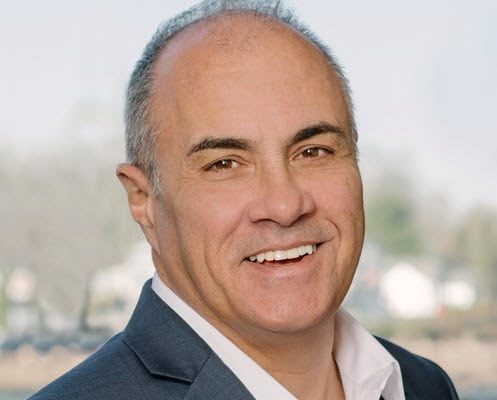Catching up with Ron Gaboury, CEO of Caregility, a Pioneer in Smart Hospital Room Systems
Caregility, a medical technology firm colocated with Yorktel in Wall Township, is making a big impact by installing smart hospital rooms and telehealth systems in medical facilities across the country and internationally.
The company integrates all kinds of smart medical devices into customer hospital rooms through telehealth end points, thereby helping to ease nursing workloads and improve patient care. The hybrid care systems also increase productivity, which leads to savings for the hospitals that have them.
NJTechWeekly.com interviewed Ronald Gaboury, CEO of both Caregility and Yorktel, the latter a 40-year-old communications systems integrator.
Caregility was spun out of Yorktel. Gaboury noted that Yorktel originally got into the medical-device business via an acquisition in 2007 of a company involved in smart operating rooms. However, “this was 2007, and we relied on another company to do the video transmission.”
Several years later, a virtual-hospital company came to Yorktel asking if it could put together a new telehealth system that would be resilient and capable of hanging on a wall. Yorktel, which is known for its integration prowess, said that it could handle the assignment, which required a challenging configuration. “We did it ourselves with a lot of very smart people.”
Gaboury recalled how the customer agreed to buy the new configuration, which used first-generation components, “and suddenly we were going to market under the Yorktel brand. It went straight to prime time.” However, the customers for this product were different from Yorktel’s current customers. “This was clinically focused,” and the customers kept giving feedback, telling Yorktel what they needed.
But this product didn’t make sense as a business unit of Yorktel, he said, as the company would have to hire people with different types of skill sets. So, Caregility was spun out of Yorktel in September 2019, with help from Yorktel’s financial institutions.
Caregility was a true startup at the time, Gaboury said. “We transferred 20 people from Yorktel, but there are more than 125 employees now. We have another 50 contract developers inside and outside the company.”
Caregility’s approach to smart hospital systems is based on its history as a systems integrator. The company has developed APIs to integrate important medical technologies and software with those of other technology providers, resulting in a single platform that can be used by hospitals for all types of healthcare-delivery workflows. Hospital systems that want these technologies can find them on the Caregility website. “You can go find the technologies that interface with us,” Gaboury told us.
The company started its hospital-room business in the ICU, but is now breaking into acute virtual nursing. With the intention of enabling hospitals to have systems in every room, Caregility developed “a program and new devices that are extremely robust and cost-effective,” he said. “Hospitals are finding the budget to go all in.” It’s like oxygen, he explained. Hospitals put oxygen in every room because the patients might need it. Well, they will need cameras and telehealth in every room to enhance the clinical workflow and improve patient care. He added, “We are not replacing nurses. The nurses love it. They can work differently and transfer some of their work on the floor to other nurses working virtually.”
He added that customers in a hospital setting require reliability. Caregility designed its systems to be self-healing, he said, which is mission critical for hospital systems. They can’t have 8,000 hospital rooms with systems that are constantly breaking down.
The company’s business is exploding, Gaboury told us, noting that he had passed up an opportunity to sell Caregility almost immediately after it was spun off. He’s grateful that he didn’t take the offer, which was quite lucrative. At the time, he already had a gut feeling that Caregility could be so much more.
As an aside, we asked Gaboury how he could handle running a startup while still operating as CEO of Yorktel. He said that Yorktel is a 40-year-old company with its systems firmly in place. While it requires some attention, the real challenge is ensuring that Caregility is set up for future growth.
Discussing his customer pipeline, Gaboury said that the business is in good shape to continue its rapid growth. “I think that we’ll have one of the biggest embedded bases of anybody that claims to do it, probably by the end of this year, if not already.”




